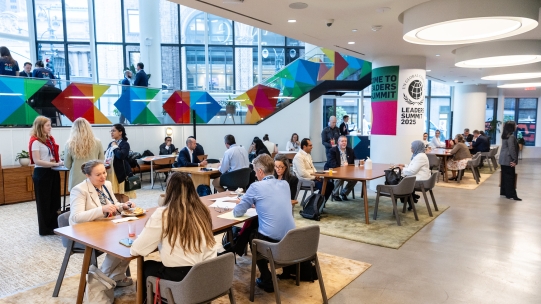Resource-strapped company in Tokyo draws on students, SMEs to build on its sustainability goals
Read more

Nissei Eblo Inc. is a small printing company with 70 employees in Tokyo. Pushed by the 2007-2008 financial crisis when the world shifted away from paper and printing, the company underwent a change to focus on marketing, digital content creation and event management.
As it did so, the company found itself creating corporate responsibility reports for its customers and decided to undergo the process itself.
“We were already working on environmental issues but were less certain of our footing in other areas,” said Nissei Eblo’s PR Director Naoto Iseki. “The Global Compact was a great starting point for us to understand what more we should do to fulfill our corporate responsibility to our common sustainable future.”
But when Nissei Eblo joined the Global Compact in 2010, the company found it lacked the necessary people, time, money and ideas to participate fully, and it struggled to take advantage of global and local programming and even to keep up with its annual reporting.
To address this deficit of resources, it partnered with like-minded SMEs in the industry and with university students. With that support, it has helped create a small ecosystem of SMEs in outer Tokyo where companies can reflect on their business activities and governance and measure them against the Ten Principles of the UN Global Compact.
The participating students, meanwhile, gain unique access to the inner workings of a sustainability-minded company, giving them useful insight for the job and career choices they will be making.
“Global Compact Network Japan offered multiple peer-learning groups, and they were interesting, but our company never had enough people, time, and knowledge to take full advantage of these programmes,” Iseki said.
“I felt that I needed to form partnerships outside the company with like-minded SMEs in order to mainstream the principles of environmental protection, social responsibility and sustainability in SMEs such as our own.”
Nissei Eblo and Iseki co-founded a non-profit organization which evolved into a collective of SMEs from the marketing industry. Now called the Sustainable Platform, it serves as a collective vehicle through which five member SMEs pool their talent, human resources and time to pursue joint projects.
“We were competitors, but we also faced the same issues,” Iseki said. “We all had problems in our own sustainability as a business, and we recognized that we must mainstream sustainability principles to fix all of these problems.”
Moving further, Nissei Eblo started an innovative collaboration with Musashino University, where it asked students to analyze the progress of the company and create its annual sustainability report in short, snappy formats to appeal to their key stakeholders – employees and local SME customers.
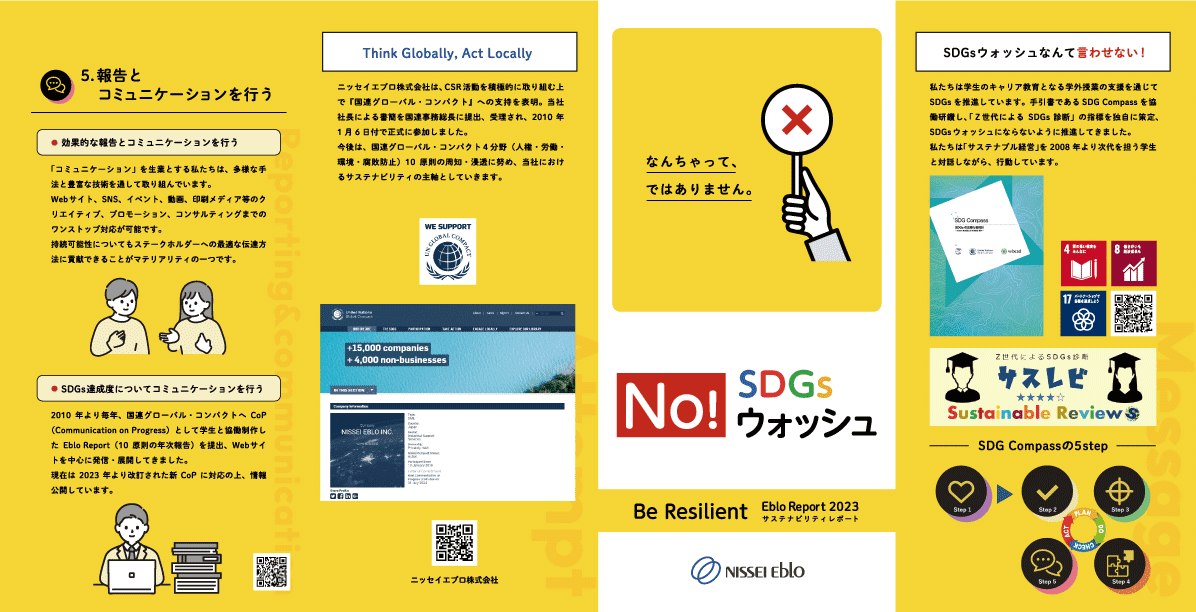
Eblo Report 2023
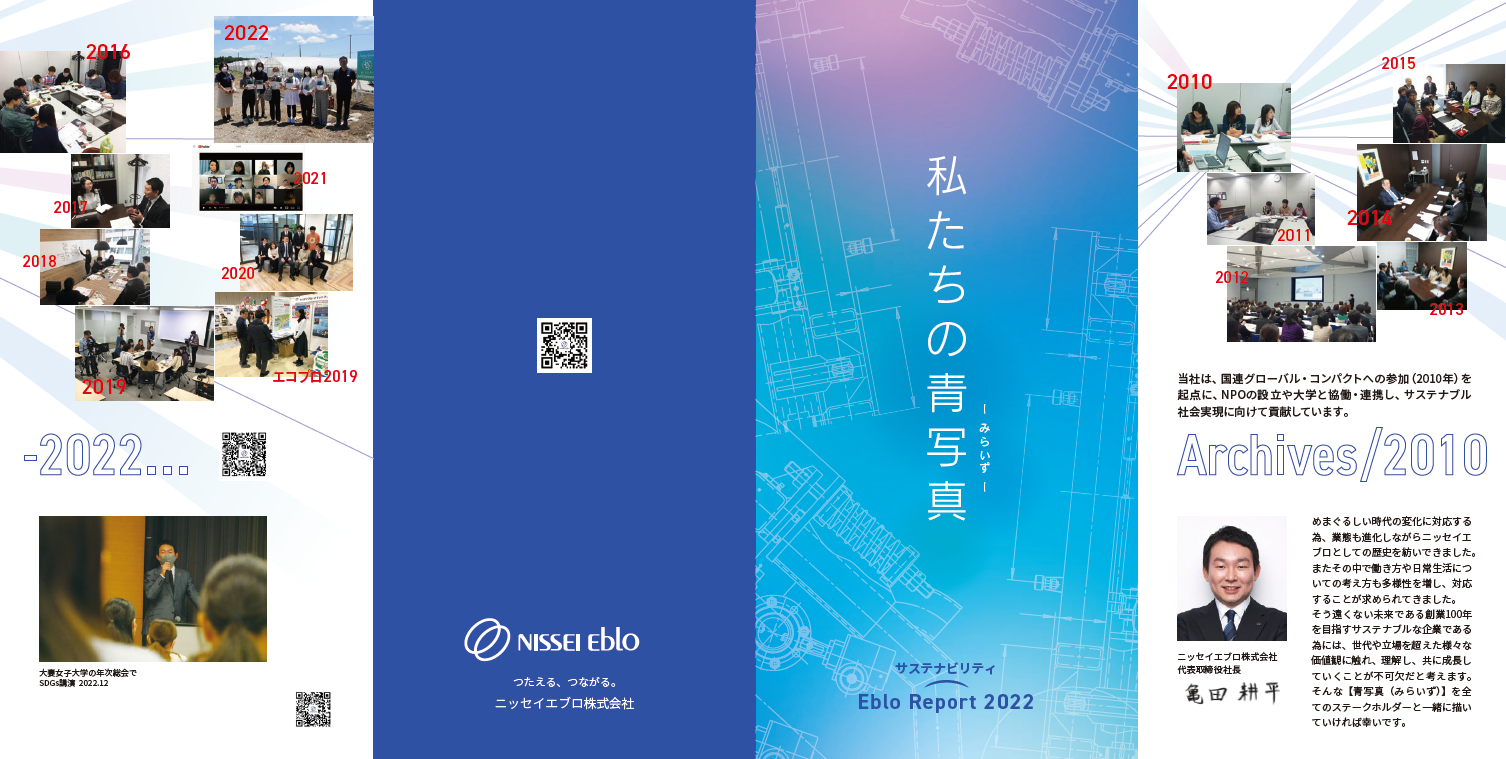
Eblo Report 2022
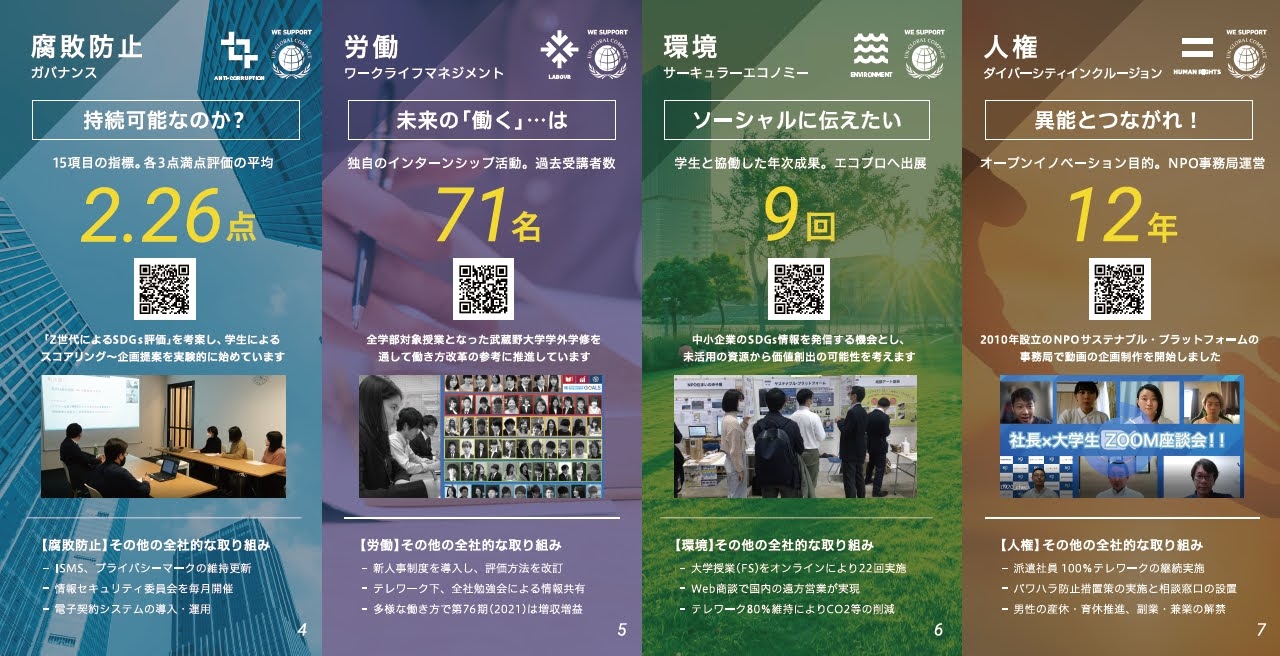
Eblo Report 2021
The students at Musashino University sign up to a field study course to study business management practices, with Nissei Eblo as their real-life field study subject.
Working on the course Musashino University Professor Akio Yanai, who called it a “brilliant idea” to engage students in the evaluation and improvement of corporate management structure and culture.
“The SME is effectively nurturing the next generation,” the professor said.
Participating students say they not only learned the value of sustainability but shed their biases against smaller companies as job prospects.
“It was a rare opportunity to interact with working adults, digest and produce a coherent output,” said student Haruka Yamada. “I learned how difficult it can be to work as a team but also how rich the ideas and opinions can be because of it.”
Fellow student Ayuna Shiga, a business management major who participated last year, agreed, saying: “Through staff interviews, I found that not everyone agreed with my point of view and how difficult it was to solve issues in real life.”
For Yuri Naruse, an engineering major, the experience helped shape job expectations for the future.
“I was able to think deeper about what decent work means and what is important in a workplace, through the creation of the sustainability report,” Naruse said.
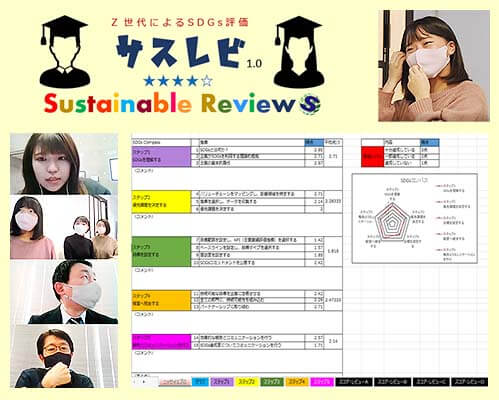
SME sustainability review tool
The SME-university collaboration model has inspired other partnerships such as one between Chuou Insatu Jimuki K.K., one of the SMEs in the non-profit collective, and Otsuma Women’s University in Tokyo.
Under this partnership, the company proposed to the university a product development project with a sustainability angle. Students and staff opted to develop and market an original blend of tea from the town of Sera, Hiroshima, where its cultivation had dwindled.
“The town of Sera was formerly known for their tea, but the industry had died as a result of depopulation,” said Chikara Takiguchi, CEO of the SME. “A small group of volunteers was trying to bring back tea cultivation.
“There is regular exchange between the town and university now,” Takiguchi added. “I am proud that a small company like us served as the catalyst of the relationship.”
The partnership with university students has helped Nissei Eblo make progress in diversity and inclusiveness, especially as the various generations understand one another’s differing expectations of rewarding work and workstyles, the company said.
“In addition to the extra hands, we benefit from the annual input from today’s youth, a diverse point of view on our actions and governance practices,” said Nissei Eblo CEO Kohei Kameda.
“The students use the SME evaluation tool to check on our anti-corruption practices and keep us on our toes.”
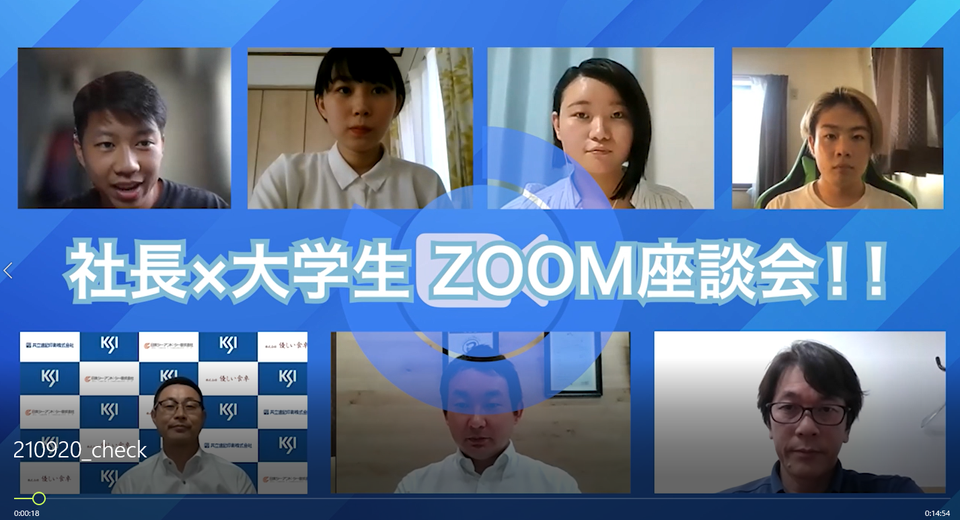
CEO x Gen-Z Talk Event (2022)

